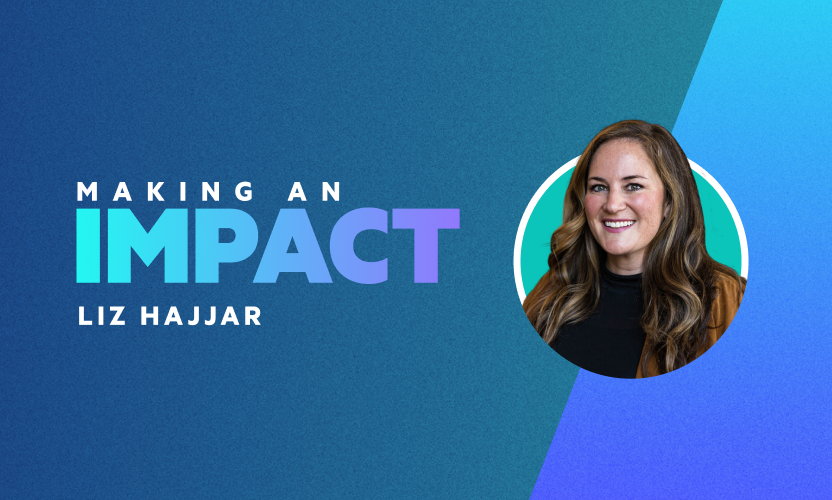
How to Hire Technical Job Candidates Who Deliver Value
When engineers think about the job recruiting process, they often imagine themselves as the “examined” ones. There are a lot of “how to get the job” articles available, but I would like to approach the topic from the perspective of the recruiter. If you are a beginner at technical recruiting or haven’t yet conducted interviews, but you think you could in the future, then I’ll be glad to give you some tips.
Why Is It Beneficial for You?
Ideally, you want your employer's business goals and your personal career goals to align. It’s very important -- just think about people who hate their job; I believe you don’t want to be one of them. That’s why this employer-employee synergy must happen. Interviews are one of the things you can do to make it real.
And of course, companies want the right people so they can be effective and generate profit, so, the company obviously benefits from an effective recruiting process. But what's in it for you and your own goals?
Improve Your Skills
Albert Einstein allegedly said, “If you can't explain it simply, you don't understand it well enough.” Let me paraphrase that in the context of hiring: If you can't ask simply about something during the technical interview, you don't understand it well enough.
During a lot of interviews, you will see that asking appropriate questions is more difficult when you don’t feel like an expert on the topic. Don’t worry, this is how it works. It shows you the areas where you need to improve your skills.
You can also learn during the interview, not only identify gaps in your knowledge. A good way to do this is to conduct the interviews with someone else from the company, someone who has more expertise. It’s the oldest and the most effective way to learn: the master and the student. The interesting thing is that you can learn not only from your coworker but from the potential employee as well. It might sound surprising, but even if they don’t know as much as you do, they still have a variety of experiences and that can provide perspective. They might be older or younger and, potentially, they can have completely different points of view than you. And it will be very eye-opening!
Remember that not only technical skills are important. Almost always, engineers have to work within teams (I know, I know, talking with people was not the goal of studying IT ;)). You will meet a lot of different people during interviews and will continuously learn how to talk to them. Some of these people will be introverted, and you will need to work very hard to identify what they know. Some will be talkative, and you will need to stop them without being rude. Balancing between such different approaches turns out to be a difficult thing.
Your Voice Matters
Keep in mind that your voice on candidates matters, and it has a real impact on company outcomes. The company will hire people based on your recommendation. It’s a great power so don’t forget that with great power comes great responsibility. This is exactly what allows you to grow: responsibility.
Your Position at the Company
What creates your personal branding at the company? I believe it’s based in trust. The trust that you are reliable, the trust that you are a good team player, and the trust that you are an expert. This last item, making coworkers believe in your expertise, is what you can achieve with technical interviews. It’s simple: if you interview people about Java, you need to know it really well.
Imagine you want to change your job. You can put “conducting technical interviews” in the CV. It will give you a good point to talk about during your interview. Use it to expose your strengths. And while we’re talking about interviews: you’ve already conducted hundreds of them, you know what type of answers recruiters expect. Sounds better than going to another exam-like interview when you didn’t know what they wanted to get from you, right?
Recruitment tips
OK! Let’s jump into the tips I’ve prepared for you. Of course, it’s near impossible to remember all of them at once but don’t worry, the article won’t be removed! Just pick one tip for now and try to use it. If it works, then choose another one in a step-by-step fashion.
Before the Interview
As always, appropriate preparation is one of the most important things for the interview run successfully. (This concerns both sides, by the way, but we are focusing on being a recruiter now.) So what can you do to prepare yourself for it?
Assemble the list of questions and topics you want to touch upon. Does it sound like wasting time to you? Do you already know what you want to ask about Java? So stop reading and ask five questions now, one after the other, without thinking for too long. It isn’t that simple. Even if you are able to come up with some questions, stop again and ask yourself if they really validate the knowledge you expect a candidate to have.
By the way, this is very important when preparing the list of questions: what should they know? Put on the list only the questions that are relevant to the job they will do. Do you have Spring in your project? What is the reason to ask about Dropwizard? Do you really want to ask about all sorting algorithms? When did you last use them at work? Go with the real problems that you need to face in your day-to-day work. Don’t misunderstand me, you can ask about algorithms and technical matters as well. Just make sure they are relevant to issues you have to work with.
The second type of preparation you can do is creating the test task. We usually send a task to candidates before we decide to invite them for an interview. I say usually, because it depends on the team. The important assumption is that the task is well prepared.
What does it mean? It should verify as many things as possible that you would like to cover during the interview. You also should be able to say what the level of the candidate's knowledge is based on their solution. It will allow you to save time during the interview because you can start with an appropriate level of questions. For example, it’s important for us at Egnyte to think about a system as something that has to be highly scalable: our task can verify if a given candidate thinks about scalability or not.
One important thing to consider: you have to dedicate some time to prepare such a task. It’s impossible to design a valuable task in 30 minutes. Ask your manager for the time to do it. We’ve spent two days within a two-people team preparing our task, but now it allows us to save time (and, because of that, a lot of money) during the recruiting process.
During the interview
You see the Slack message announcing that the candidate is waiting. What can you do now to make sure the interview will be valuable for the three sides involved: your employer, the candidate, and you?
There are a couple of tips I can share. But first, let’s answer this question: why should the interview be valuable for the candidate? If you decide to hire them, it’s simple: if the candidate received value from the interview process, they would expect the same from the job. You increased your chances of getting picked. They will choose your offer over others (and good engineers always have multiple offers) because of how they perceive you and your company.
But what if, after 15 minutes, you already know you won’t hire them? Can you be rude? Of course not! Try to guide them. Ask about things they should learn and then explain the answers. Keep in mind this candidate has friends, and they have their friends. By doing the interview well in this case, you work on employer branding. Moreover, it might happen that this person will learn a lot in the next one or two years and what then? They may try again having in mind how valuable it was during their previous interview.
So, first of all, be nice. Really. Unfortunately, this is the thing that needs to be said because there are recruiters who treat the interview like an exam and see themselves as examiners. It is not an exam, it is an interview where both sides have to decide if they fit each other. Say hi to the candidate, ask if they have what they need (like water or coffee), ask about their trip to the office. It will create a positive impression and an enjoyable atmosphere. Remember that it’s stressful for a candidate. You should verify their knowledge in the environment they will work in so probably without a rude person just waiting for their mistakes.
Don’t rush the candidate if they need to think. They probably will have some time to think in their day-to-day work, so it isn’t reasonable to pressure them to provide an instant response for everything during the interview. I know that silence might be uncomfortable and cannot take too long. In such a case, just smile and try to help with some auxiliary questions.
It might happen they just don’t know the answer or they make a mistake. That’s part of your job here: find the gaps. What then? Again, first of all, be kind. Do not sneer. Instead, explain what they don’t know in a few sentences. The candidate will be happy they can learn something during the interview.
From time to time, you will interview a candidate who has knowledge broader than “good.” How do you convince them to choose your company? One way is to let them know they can still learn something from you. In that case, just don’t stop asking questions when you know they know enough. Go deeper and deeper. They’ll see the company hire experts, so joining it will be beneficial to them from the learning perspective.
The second way of making the candidate satisfied with the interview is to encourage them to ask questions. Remember that they likely have other offers on the table and they have to make a choice as well. Give them ample time for their questions. They’ll appreciate that.
I always tell candidates they can ask questions during the interview, but I always leave some time at the end anyway. My experience shows they generally don’t ask about anything before I say: “OK, now it’s time for your questions”. Sometimes this sentence is not even enough. And here we are with the hidden benefit of reverted roles: listen to what type of questions the candidate asks. Learn what they are interested in. Sometimes your company needs an introverted but truly technically sound engineer. Sometimes you seek a solid soft-skilled engineer. The questions asked by the candidate will help you to make your decision as well.
While we are at soft skills, there is one more hint. If it is a recruiting process for your team or the team you cooperate with, make sure you enjoy the conversation with the candidate. Eventually, you will have to work with them every day. Even if you have a lot of different hobbies, your job is one of the most time-consuming things in your life. It’s better to work with people you like than with people who annoy you, especially if your position and duties require much cooperation with others.
Last but not least: make notes. There are people who are able to remember the entire interview, so if you are one of them, ignore this tip. Unfortunately, life shows most people forget the details very fast. And I’m definitely one of them! It’s important to have details because you will be asked later: “What do you think and why?”. While answering “what” will be easy because the general impression is an emotion and people remember emotions easily, the answer for “why” requires you to recall facts that can quickly be forgotten. The difficult thing in making notes is doing that without looking like an examiner who is only interested in their notes. At Egnyte, we conduct interviews in pairs. Thanks to that, we can ask questions in turns and make notes right after the candidate responds.
After the Interview
If you have already finished the interview, spend 10-20 minutes to write down your notes in the place where you store information about candidates (some recruitment system or anything else you use). Summarize all your thoughts. It offers two benefits. First, you will organize your thoughts in your head writing them down. It will help you to give valuable feedback. Second, you will leave solid notes for the future: if you don’t hire that person but invite them again after, say, two years, you (or anyone else) will know what was wrong last time. This knowledge will help with preparing for the next interview and can make a good impression on the candidate.
If the company hires the candidate then that’s it, your job is done here. But what if not? Then there is still one thing you can do to finish the entire process in a sensible way: give feedback. Candidates appreciate it. They like knowing what was so wrong that they cannot work for your company. Having written notes can help you with providing valuable feedback. See? I told you notes are important ;)
Recently, we’ve started testing a new way of giving feedback. We inform the candidate about the result of their process and add a question: “Would you like to come by and listen to the face-to-face feedback with a possibility to ask questions, or do you prefer to receive feedback via email?”. This is a new idea so we still don’t know if more people like it (some for sure, we know that already!) but you can treat it as the inspiration for unconventional ideas.
Final Thoughts
There are two additional points I would like to underline. First, how much time should the technical interview take? It depends, of course. At Egnyte we usually need one and a half hours for backend developers’ interviews (this is what I’m responsible for). It seems long but please, keep in mind that we work with a large-scale system operating 24 hours every day. It means that we have to verify very carefully if the candidate knows enough in different knowledge areas.
Moreover, we always dedicate 15 minutes of these 1.5 hours to the questions our candidate may have. Sometimes we make the interview longer if the candidate has a lot of questions, but in general, it’s enough. If your project is small and you don’t need to cover so much, I can imagine that 60 minutes or even 45 minutes could be fine.
The last piece of advice is trivial, but I don’t want to miss it in the article. Every recruiter once had their first interview, so don’t be afraid. If you don’t feel good enough, just try to start being “the second person” during the interview. Go there with an experienced developer who will let you ask some basic questions and who will take the lead when you need it. After two or three first interviews, you will see it isn’t so difficult.
This blog post is longer than I expected at the beginning, but I believe it can help you start conducting interviews or, if you are already involved in this process, improve the way you do it. Good luck!






